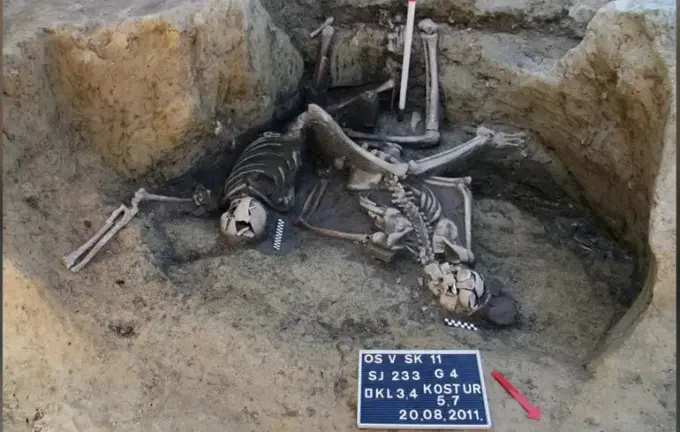Archaeological Discoveries in Croatia Shed Light on Ancient Roman Soldiers’ Battle

Recent archaeological excavations in Croatia have unveiled secrets of the past, helping to reconstruct events that took place over 1,700 years ago.
During excavations of an ancient well in the city of Osijek, known as Mursa during the Roman Empire era, archaeologists discovered the skeletons of seven men who had been haphazardly thrown into the water many centuries ago.
Analysis indicates they were likely Roman soldiers who fought in the Battle of Mursa in 260 AD.
The skeletons were found in various positions, including one upside down, suggesting different circumstances of death.
Artifacts such as broken weapons, armor, and equipment were recovered along with the bodies, and it is believed that all valuables were removed before the bodies were discarded into the well.
All seven individuals were adults, with some in youth and others middle-aged.
Many of the skeletons showed signs of injuries to the head and ribs, indicative of violent trauma prior to death.
Notably, evidence of inflammation and internal injuries suggests that these men may have suffered from respiratory infections or trauma close to their demise.
Radiocarbon dating confirmed the remains belong to the second half of the 3rd century, aligning with the date of a Roman coin found in the well, minted in 251 AD.
Researchers emphasize that the features of the skeletal remains match those typically seen in mass graves of combatants, similar to battlefield burials of Napoleonic soldiers.
Given the location of the burial site near ancient Mursa, scholars conclude these remains probably belonged to warriors participating in the Battle of Mursa in 260 AD, marking a significant historical breakthrough in understanding Roman military conflicts.

